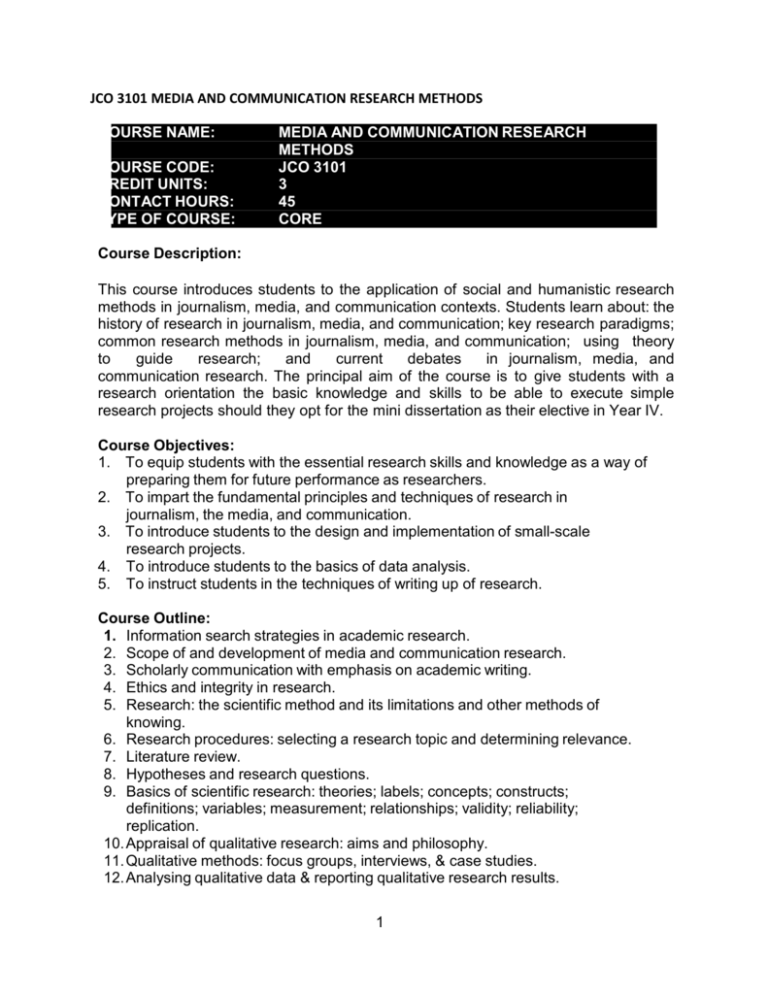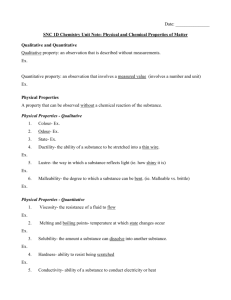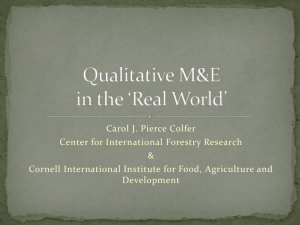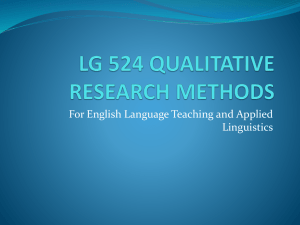JCO 3101 MEDIA AND COMMUNICATION RESEARCH METHODS
advertisement

JCO 3101 MEDIA AND COMMUNICATION RESEARCH METHODS COURSE NAME: COURSE CODE: CREDIT UNITS: CONTACT HOURS: TYPE OF COURSE: MEDIA AND COMMUNICATION RESEARCH METHODS JCO 3101 3 45 CORE Course Description: This course introduces students to the application of social and humanistic research methods in journalism, media, and communication contexts. Students learn about: the history of research in journalism, media, and communication; key research paradigms; common research methods in journalism, media, and communication; using theory to guide research; and current debates in journalism, media, and communication research. The principal aim of the course is to give students with a research orientation the basic knowledge and skills to be able to execute simple research projects should they opt for the mini dissertation as their elective in Year IV. Course Objectives: 1. To equip students with the essential research skills and knowledge as a way of preparing them for future performance as researchers. 2. To impart the fundamental principles and techniques of research in journalism, the media, and communication. 3. To introduce students to the design and implementation of small-scale research projects. 4. To introduce students to the basics of data analysis. 5. To instruct students in the techniques of writing up of research. Course Outline: 1. Information search strategies in academic research. 2. Scope of and development of media and communication research. 3. Scholarly communication with emphasis on academic writing. 4. Ethics and integrity in research. 5. Research: the scientific method and its limitations and other methods of knowing. 6. Research procedures: selecting a research topic and determining relevance. 7. Literature review. 8. Hypotheses and research questions. 9. Basics of scientific research: theories; labels; concepts; constructs; definitions; variables; measurement; relationships; validity; reliability; replication. 10. Appraisal of qualitative research: aims and philosophy. 11. Qualitative methods: focus groups, interviews, & case studies. 12. Analysing qualitative data & reporting qualitative research results. 1 13. Appraisal of quantitative research: aims and philosophy. 14. Quantitative methods: sampling, content analysis, & surveys 15. Analyzing quantitative data & reporting quantitative research results. 16. Introduction to basic statistics and statistical procedures. 17. Research project design; Proposal development & writing Learning Outcomes: On successfully completing this course the student will: 1. Understand the role of theory in media and communication research; 2. Be able to conceive a researchable idea and to formulate a meaningful research topic; 3. Know the differences between qualitative and quantitative research; 4. Be able to develop answerable research questions and hypotheses; 5. Be able to implement simple study designs for qualitative and quantitative research; 6. Know the elements and contents of a research proposal; 7. Demonstrate the ability to write academically following the basic rules and conventions of scholarly communication. Methods of Teaching/Delivery: • Independent study • Interactive lectures • Collaborative work • Group discussions • Field-based practical exercises • In-class tasks Methods of Assessment: • Coursework 40% (test and take-home assignment each 20%) • Final exam 60% Readings/Reference Materials/Learning Resources: • Wimmer, R. D., & Dominick, J. R. (2003). Mass Media Research: An Introduction, 7th ed. Belmont, CA: Wadsworth. • Jensen, K. B. (2002). A Handbook of Media and Communication research: Qualitative and Quantitative Methodologies. London: Routledge. • Patton, M. Q. (2002). Qualitative Research and Evaluation Methods, 3rd ed. Thousand Oaks: Sage Publications. • Makerere University Library (http://mulib.mak.ac.ug) 2







